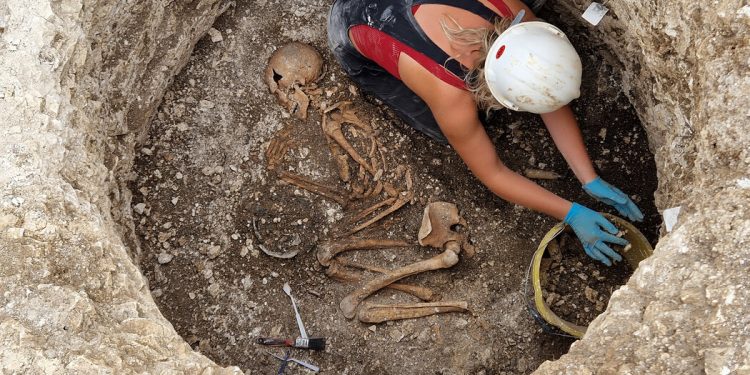A tantalizing vision of a female-centered society has emerged from an ancient cemetery in the bucolic countryside of southwest England.
While women typically left home to join their husband’s family after marriage, the Durotriges, a Celtic tribe who lived in Dorset 2,000 years ago, broke the mold with a system called matrilocality, in which women Women remained in their ancestral communities and men migrated to marry.
By analyzing the genomes of 57 Durotrigan buried between 100 BC and 100 AD, scientists discovered maternal lineages typical of matrilocality. It was the first time this system had been identified in European prehistory.
Furthermore, individuals whose ancestry was not linked to the dominant lineage were mostly male, suggesting that they had left other communities to live with their wives’ families, according to a published study Wednesday in the journal Nature.
“I didn’t expect such a strong signature of matrilocality,” said Lara Cassidy, an assistant professor of genetics at Trinity College Dublin who led the study. “When that came out in the data, it was a bit of a shock.”
“But upon reflection, if you look at what the classical writers were talking about and if you look at the archaeological context, there is a lot of evidence to suggest that women were able to achieve high status in these societies,” she added.
Thank you for your patience while we verify access. If you are in Reader mode, please exit and log in to your Times account, or subscribe to the entire Times.
Thank you for your patience while we verify access.
Already subscribed? Log in.
Want all the Times? Subscribe.


